
When it comes to gardening and popular vegetables, tomatoes are at the top of the list. But not far behind are cucumbers.
Whether you enjoyhomemade picklesor the cool, refreshing crunch of sliced cucumber, most of us have a few of these plants growing in our garden.
Occasionally, instead of the lightly sweet, melony taste we expect, you get a bite of bitter cuke. What makes cucumbers bitter, and what can you do about it?
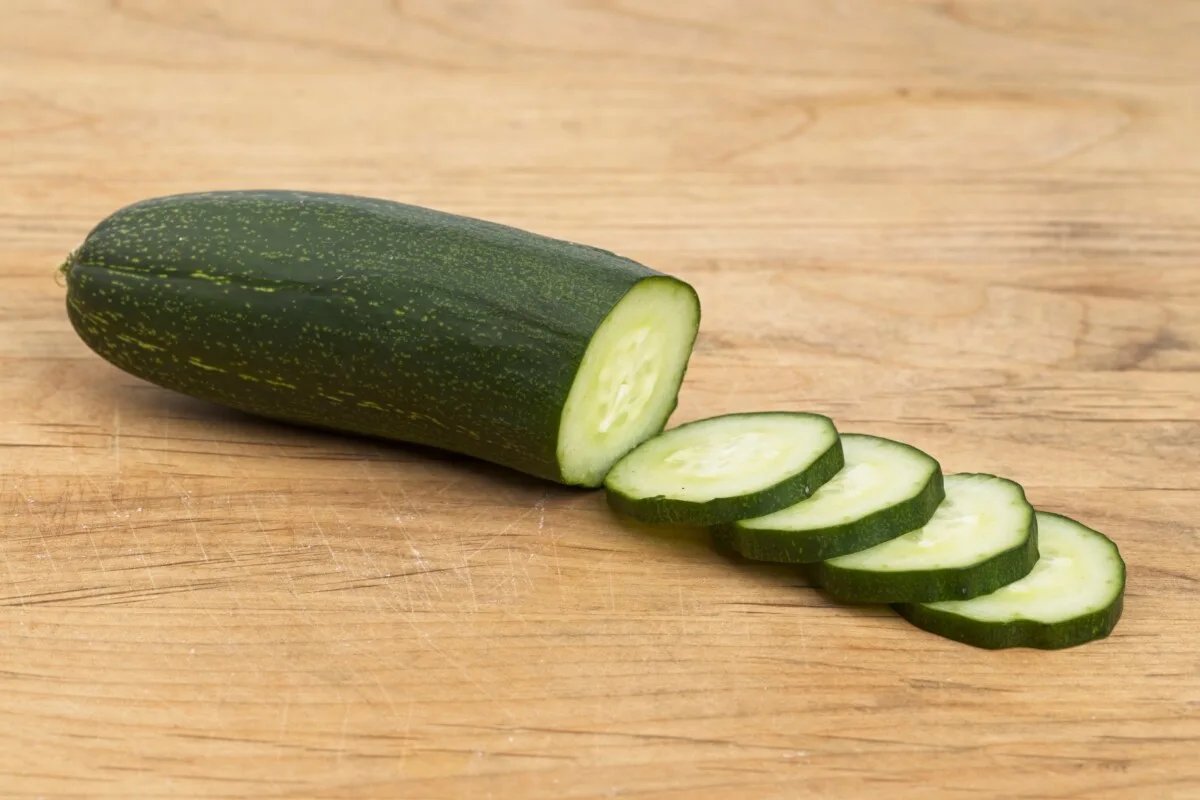
It’s Right There in the Name
Cucumbers are members of the cucurbit family or, more commonly, the gourd family. It’s a pretty big clan that includes quite a few popular garden inhabitants, such aspumpkins,zucchiniandwatermelon. Most cucurbits grow as annual vines with yellow flowers and hairy stems.
But perhaps the most important characteristic of all cucurbits is they all produce cucurbitacin.
Cucurbitacin
Cucurbitacin is a naturally occurring compound (if you want to get fancy, a tetracyclic terpene) that the plant produces as a defense mechanism. And it tastes, you guessed it, bitter. It’s this chemical that keeps plant-munching critters from snacking on members of the gourd family.
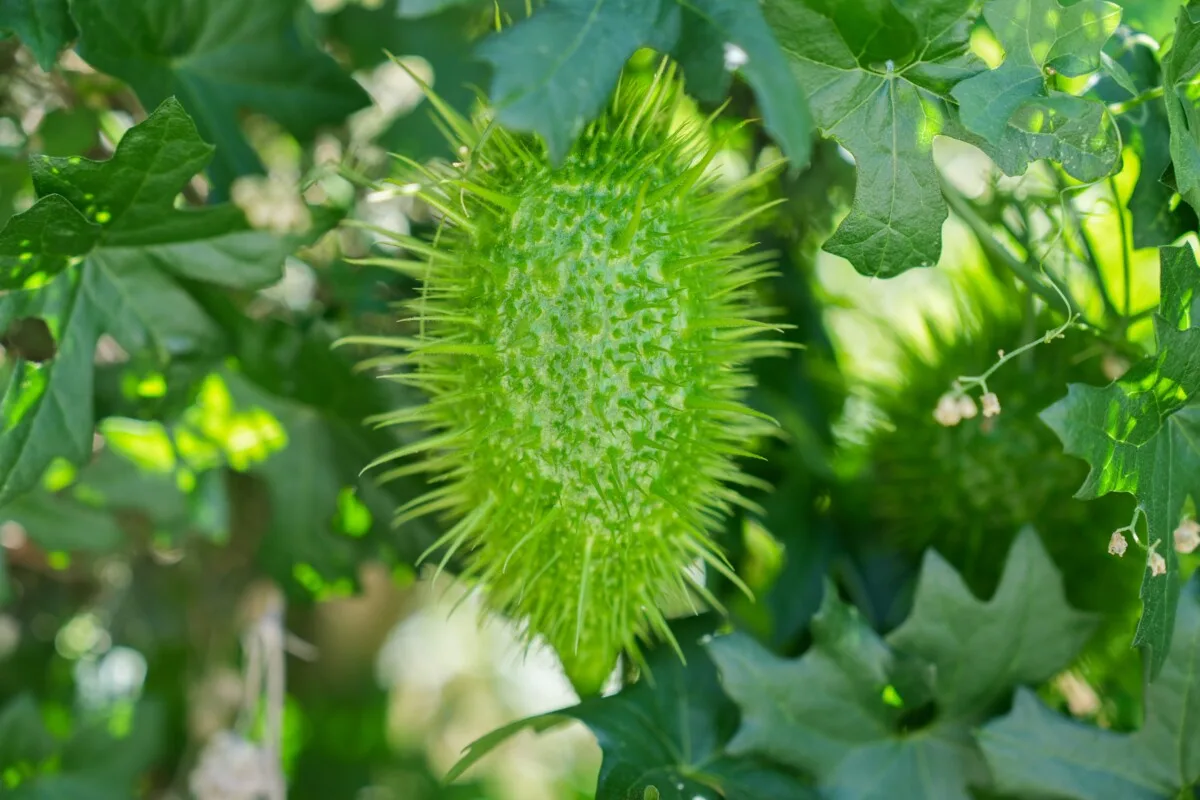
In wild variants of cucumber and other gourds, the levels of cucurbitacin are so high as to render the fruits inedible with their bitterness.
However, humankind has been cultivating cucurbits for thousands of years. Through selective breeding, we’ve drastically reduced cucurbitacin levels to produce the light, flavorful cucumber we all know and love today.
The cucumbers in your garden still contain some cucurbitacin.
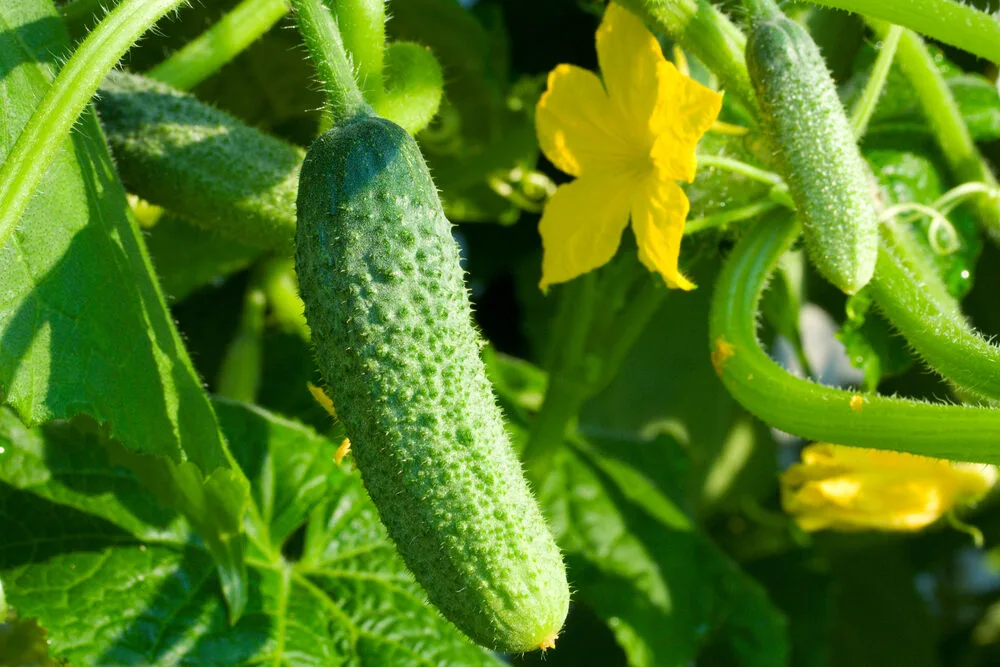
Although normally, it’s limited to the plant’s leaves, stems and roots. That’s a good thing, as it still does what nature intended and keeps most critters from nibbling on your plants. (Too bad it doesn’t always work forsquash bugs.)
但是你宠爱你的黄瓜,所以为什么他们ter?
What Makes Cucumbers Bitter – You’re Eating Your Cucumber’s Feelings
Yup, that’s right. Whenever you bite into a bitter cucumber, you’re eating the fruit of a stressed plant. No wonder it tastes so bitter.
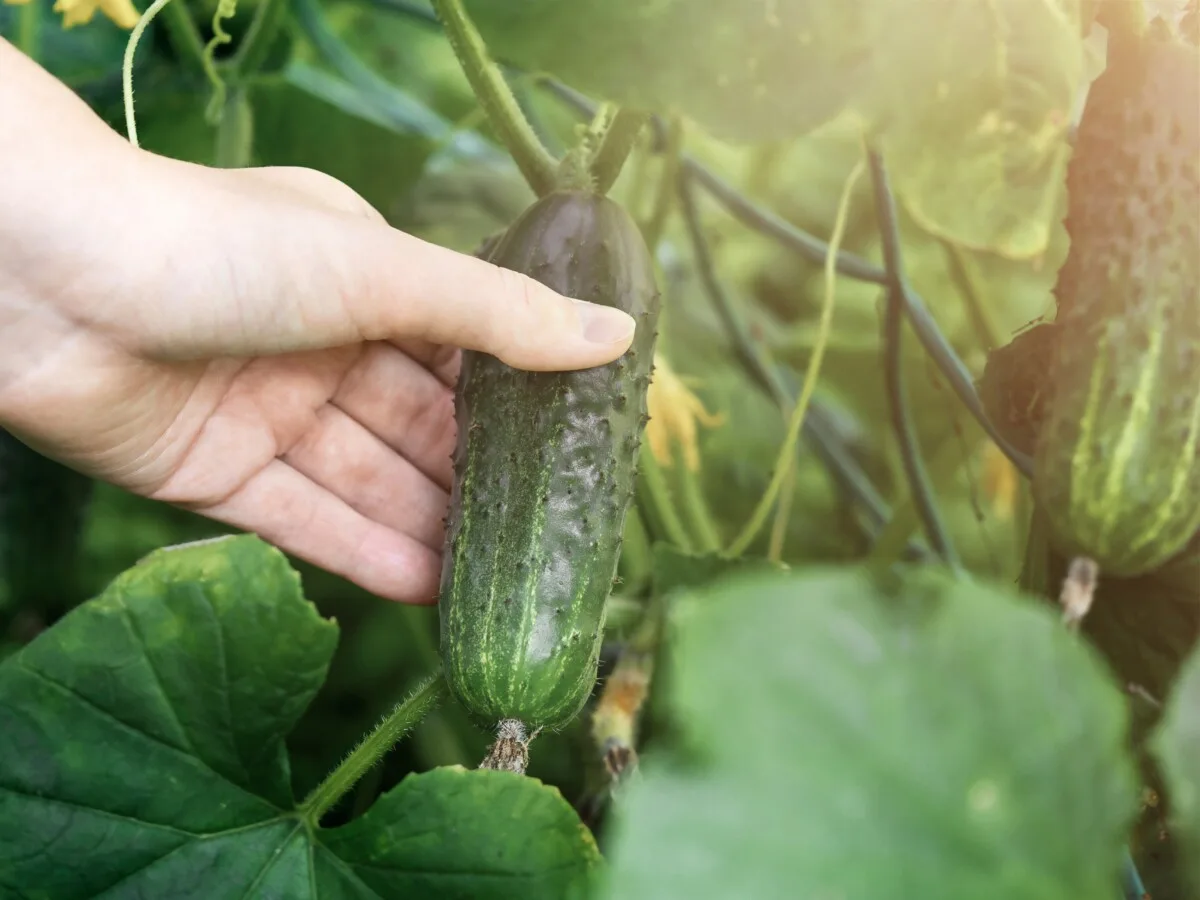
Levels of cucurbitacin are highest in plants at maturity. When your cucumber plants experience environmental stress, it makes more cucurbitacin, to the point where it makes the resulting fruit bitter.
It makes sense when you think about it.
As I’ve said in many an article, plants are only interested in one thing – making sure they produce more of themselves.
If there’s a period of drought, and the plant is severely stressed because of the lack of water, it doesn’t make sense to have a tasty cucumber hanging out on the vine while the rest of the plant slowly dies. An animal is going to come along and eat that tasty cucumber.
Instead, the plant goes into defense mode, flooding the growing fruit with bitterness to ensure nothing eats that cucumber. Now, the bitter cuke will lay untouched, where it will slowly rot, break down, and reseed in the soil.
Brilliant! Plants are evolutionary geniuses.
Bitter Cucumber Causes and How to Prevent Them
As we’ve already discussed, environmental stress can cause higher amounts of cucurbitacin in your cucumbers, but there are a few other ways cucurbitacin levels can leave your cukes less than tasty.
Genetics
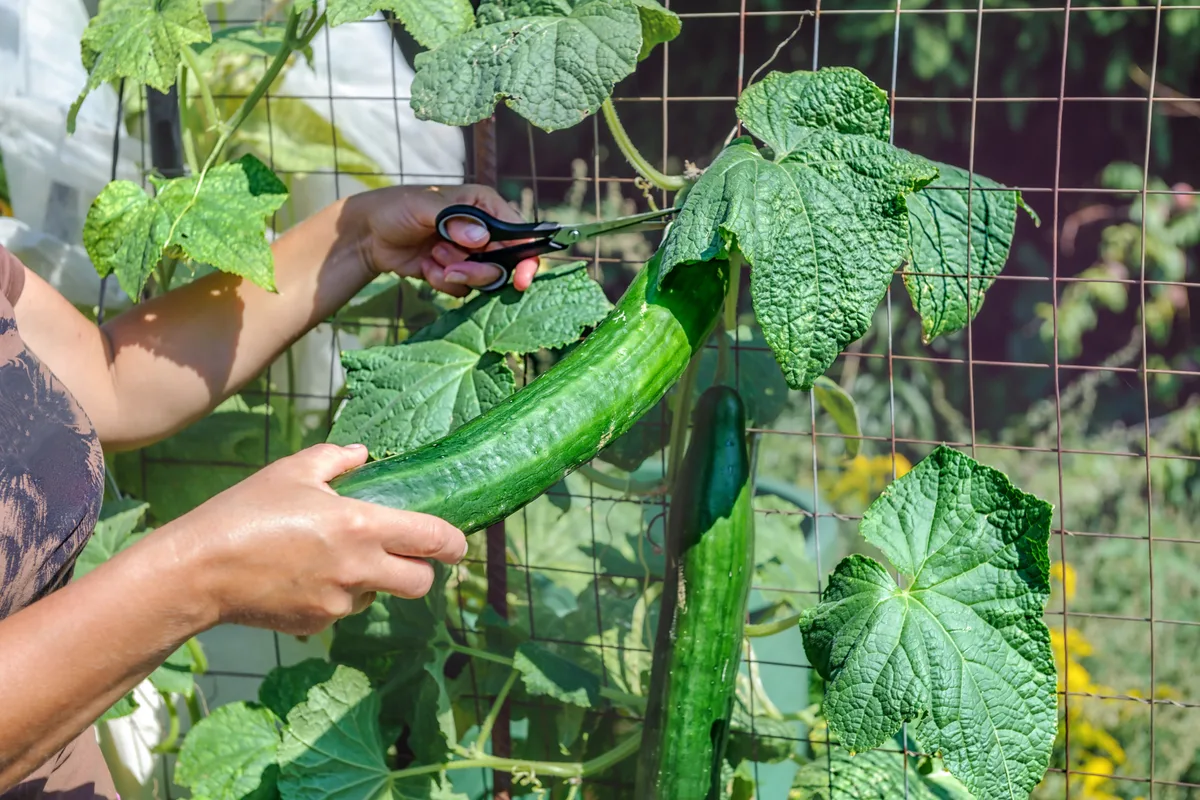
Some cucumber varieties are more prone to bitterness than others, usually those with thicker skin. When choosing what variety to grow, look for seeds or plants marketed as less bitter or heat-tolerant. Many hybrid varieties have been bred to be less bitter.
High Temps, Low Temps or Vast Temperature Changes
Cucumbers exposed to temperature stress will produce higher levels of cucurbitacin, leading to bitterness. Unfortunately, there isn’t much we can do to change the weather. However, you can employ the use ofshade clothsover cucumber plants during extreme heat to help regulate the heat. Alternatively, you can also usefloating row coversduring cooler weather.
Uneven Watering
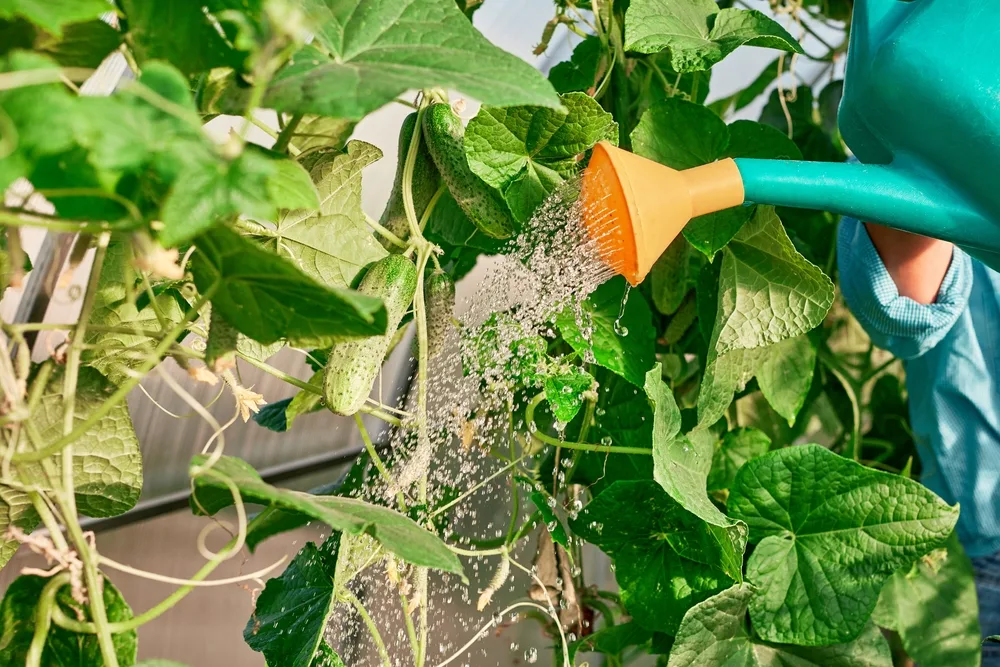
Too much water or too little water can also cause bitter cukes. Watering cucumbers by hand or with a soaker or drip hose may be necessary in periods of drought to prevent them from producing too much cucurbitacin. Unfortunately, if you get a rainy season, there isn’t much you can do.
Pest Damage
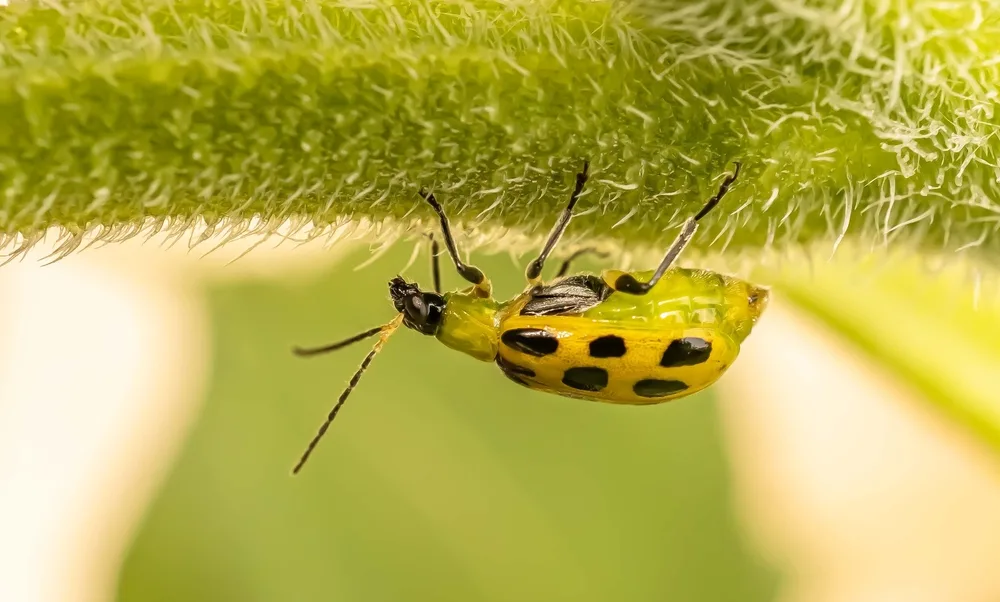
Remember, cucurbitacin is a cucumber plant’s defense mechanism. If the plant is infested with pests, it will release more of this compound in an attempt to keep those munching insects at bay. Deal with pests as soon as you find them to prevent an infestation.Trellising cucumberscan help by growing them off the ground.
Harvesting Issues
When you pick cucumbers can also affect whether or not they’re bitter. Large, overripe cucumbers left on the vine too long are usually bitter (and bestsaved for seeds). Once your plant starts producing fruit, pick daily to ensure you’re picking fruit as soon as it’s mature. This will differ for each variety you’re growing, bush or vine, pickling or slicing.
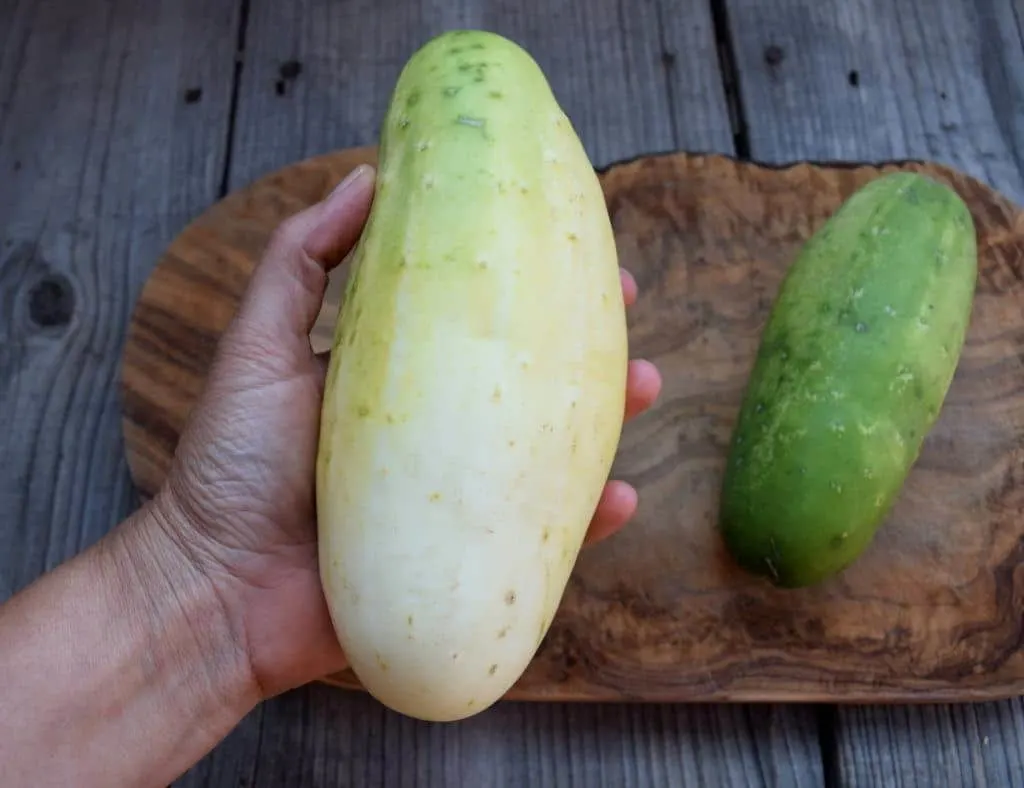
Misshapen fruits can also be a sign of bitterness, as these cucumbers are usually the result of plant stress or pest issues.
存储问题
Heat from improper storage or through the natural process of evaporation, the cucumber will lose water, effectively concentrating the cucurbitacin in it and making it taste bitter after a while. Once you pick cucumbers, they must be stored in the fridge or processed quickly.
What to Do with Bitter Cucumbers?
Cucurbitacin is usually concentrated at the stem end of the cucumber and in the skin. If you find yourself with a batch of bitter cucumbers, the best thing to do is peel them and slice the stem off before eating them. You might want to take a bit more off the stem end than usual, like an inch. Rinse the peeled cucumber under cool water to wash off any of the remaining bitter compounds.
Cucumber Milking
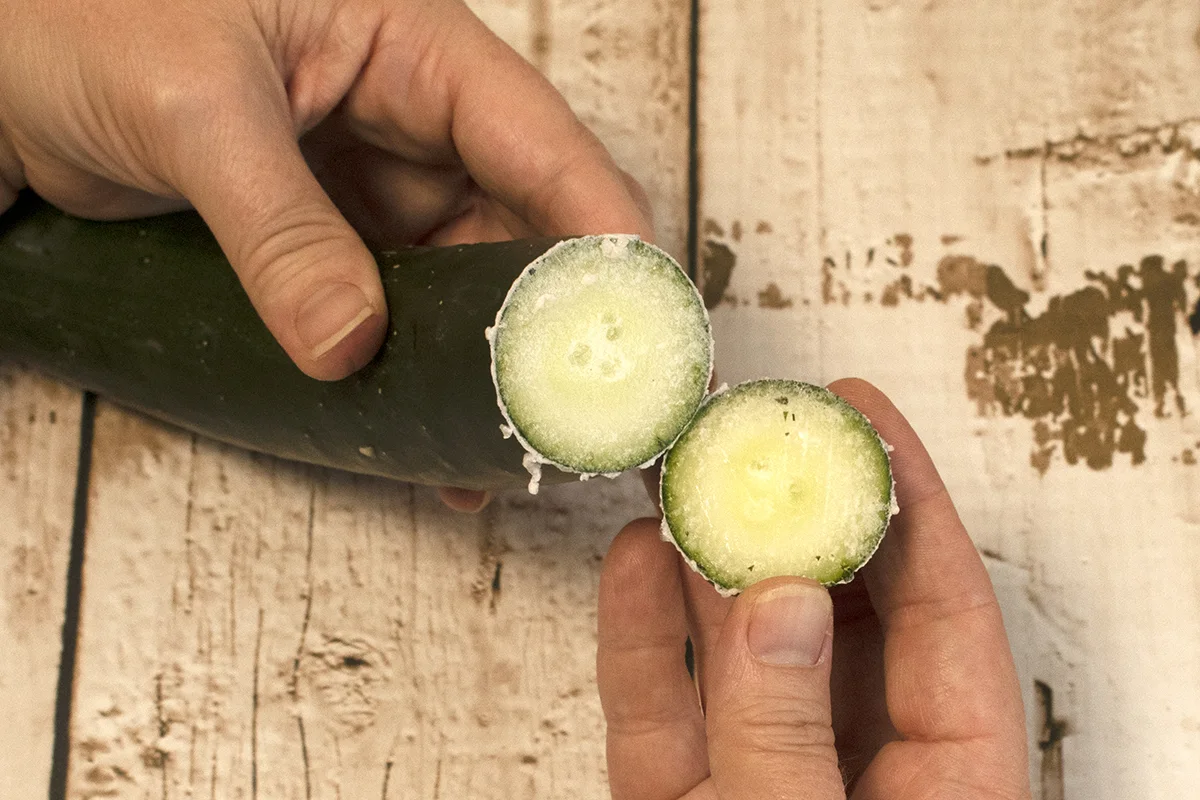
This strange cucumber hack popped up on the internet quite some time ago. While it gets mixed reviews about whether it works, it’s worth a try. For what it’s worth, I have had pretty good success with this method.
Cut the top of the stem end off the cucumber. Now, gently rub the two cut pieces together for 10-20 seconds. In doing so, you’ll notice a sticky froth developing. Wipe this off and discard the stem end. Apparently, the rubbing of the two pieces creates enough friction to cause a bit of suction which draws out the cucurbitacin. In theory, anyway.
Hopefully, with these tips, you’ll have plenty of tasty cucumbers to make pickles andtons of other goodies with.
